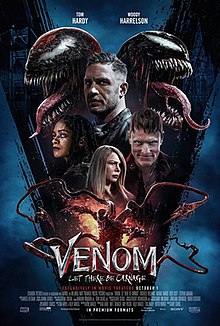
Paul Atreides, heir to the powerful House Atreides, is to inherit the sand planet of Arrakis, but soon a galactic war begins between Houses and Imperial forces, leading Paul to have to discover his legacy and what kind of leader he wants to be.
One of the most ambitious cinematic projects of the year, Dune merges the styles of mainstream blockbuster and artistic epic, with majestic direction from one of the best filmmakers of our time, Denis Villeneuve. He creates an incredible scope, resonant of the world-building of Star Wars and Lord of the Rings and the grand desert shots of Laurence of Arabia. The visual effects seamlessly combine practical and CGI effects to create an immersive new galaxy, but the action and scenery is defined by the meticulous and grand cinematography, which adds to the gripping, breathtaking nature of the film. The production design and visuals create the ultimate spectacle of the year visually, and the world-building exposition may be slow-moving and slightly hard to follow for some, but mostly done well. The score by Hans Zimmer is destined to be a highlight of his career. The booming sound design combined with Zimmer’s loud, often godly music creates unforgettable moments throughout the movie. The cast is stacked with famous faces so I don’t even know where to start. Chalamet in the lead wonderfully balances Paul’s sense of youth, discovery and uncertainty, though he is good at adapting and looks to embrace his destiny and survive. The heart of the film may rest in the hands of Rebecca Ferguson, who delivers not only the best performance in Dune but the best of her career, as Paul’s mother Lady Jessica. Contrasted to Paul’s father Leto (Oscar Isaac), a noble leader who loves his son but the film mostly focuses on their relationship from the diplomatic lens and the responsibilities Leto will pass down to Paul, we see how Jessica who comes from a lower-ranking society gives Paul new, unique survival instincts and his heart. Other standouts include Josh Brolin and Jason Momoa as warriors from House Atreides who serves as mentors to Paul as well. Sharon Duncan-Brewster is also really great in the film, not to mention other familiar faces show up that will excite audiences — Stellan Skarsgard, Dave Bautista, Zendaya, and Javier Bardem all have small but key roles as well.
Those who have never read the source material will find themselves drawn into these vast new worlds thanks to the beautiful execution, and fans of Frank Herbert’s novel will not be disappointed by the invigoration of the story to the big screen. To add to the intensity and large action, Villeneuve not only likes to immerse the audience in the consequences of violence but often just observe the chaos. Though everything is otherworldly, there’s plenty of moments of stillness felt like the omniscient shots of Sicario, Blade Runner 2049 and Arrival. The film focuses on themes such as legacy, parentage, colonialism and our relationship with the natural world, as well as mentorship, and fate. Though the story is mostly engaging, the third act does fizzle out a little bit in an attempt to set up the sequel. Dune very much feels like the first half of a mega-movie that will be completed and certainly defined by the second part. Unlike other “two-parters” like Avengers: Infinity War which ended on a bang, this feels more like the end of The Fellowship of the Ring or The Hobbit: An Unexpected Journey which ends less on a cliffhanger or large set piece but more on a feeling that the journey has just begun. Many plot points are left deliberately unresolved for that next film to adapt the second half of the book, and the movie has already much story and development to include in its 155-minute runtime. This can be frustrating for some, but for those like me who enjoyed this movie, you’ll be left wanting Part Two ASAP. Dune is a rich experience and a must-see in theaters for sci-fi lovers and fans of Villeneuve’s past efforts as well as the star-studded cast. Supporting this one on the big screen will not only get Warner Bros. to get to work on the next chapter soon, but will have its audience take away some beautiful visuals, scope and action, the kind we only get once in a while, even in the world of fast-paced blockbusters.





